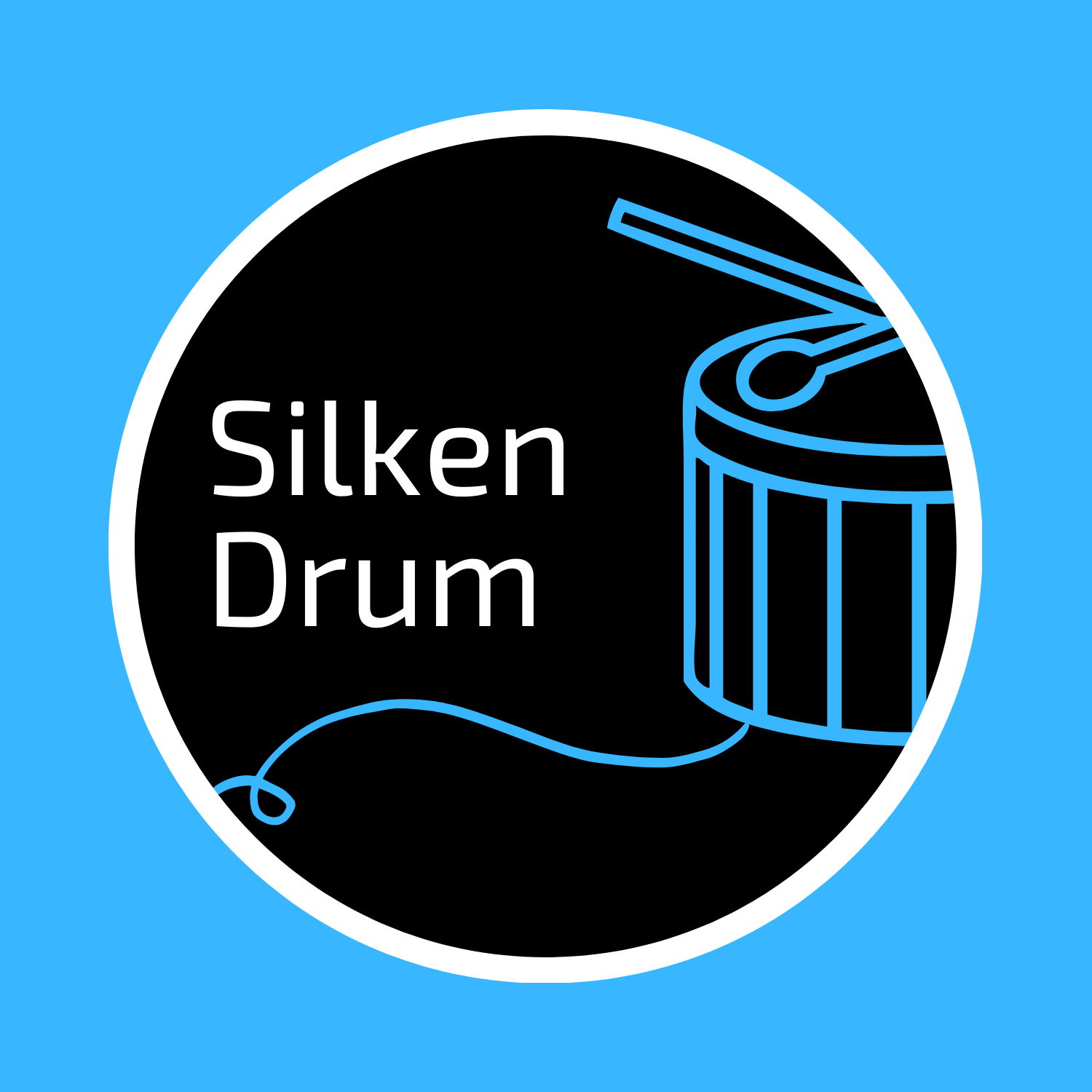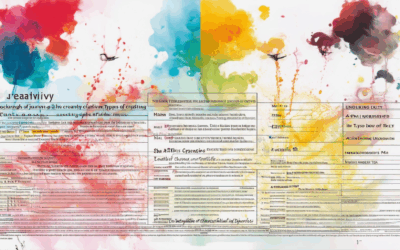Writing a successful community blog can feel overwhelming, especially when you’re navigating the complexities of sharing your thoughts, connecting with readers, and building a meaningful online presence. Whether you’re a seasoned writer or someone just beginning their journey, finding the right resources and communities to support your growth can make all the difference. In this comprehensive guide, we’ll explore everything you need to know about starting and managing a thriving writing community blog, from tips and tools to the best platforms for connecting with fellow writers. Discover how to overcome common challenges, find inspiration, and join vibrant online writing groups that will empower you to take your writing to the next level. Let’s dive into the world of community blogging and unlock the secrets to creating content that resonates with readers and fosters connections.
Key Takeaways
– Master Blog Writing as a Non-Writer: Plan thoroughly, outline content, use tools like Grammarly, focus on a niche, write clearly, incorporate visuals, collaborate with experts, optimize for SEO, stay consistent, learn from feedback, and join communities like Silken Drum.
– Avoid Common Mistakes: Refrain from self-promotion without value, avoid plagiarism, steer clear of clickbait, minimize technical jargon, prevent offensive language, respect copyright laws, avoid excessive ads, protect privacy, and steer clear of misinformation.
– Monetize Your Blog: Use Google AdSense, engage in affiliate marketing, sell digital products, attract sponsors, offer premium content via platforms like Patreon, freelance writing assignments, integrate YouTube channels, and ensure technical and SEO optimization.

How to Write a Community Blog
Writing a community blog is a fantastic way to connect with others, share ideas, and foster meaningful conversations. Here’s a step-by-step guide to help you get started:
1. Define Your Purpose and Audience
Before you start writing, take some time to clarify why you’re creating this blog and who your target audience is. Are you aiming to inspire, inform, or entertain? Understanding your purpose will help you stay focused and create content that resonates with your readers.
2. Choose a Niche or Theme
Your blog doesn’t have to cover every possible topic. Instead, pick a specific niche or theme that aligns with your passion and interests. Whether it’s poetry, storytelling, or community news, narrowing your focus will make your content more engaging and valuable to your readers.
3. Plan Your Content Calendar
Creating a content calendar can help you stay organized and consistent. Decide on a regular posting schedule—like weekly or bi-weekly—and plan out topics ahead of time. This will make it easier to maintain momentum and keep your readers engaged.
4. Write Compelling Content
When writing for your community blog, aim to create content that is both informative and engaging. Share personal stories, insights, and tips that reflect your unique perspective. Remember, the goal is to connect with your readers on a personal level.
5. Keep It Simple and Authentic
Write in a conversational tone and avoid overcomplicating things. Share experiences, challenges, and lessons you’ve learned along the way. Authenticity is key to building trust and forming connections with your audience.
6. Engage with Your Readers
Don’t just publish content and walk away. Take the time to respond to comments, ask questions, and participate in discussions. This will help you build a loyal community and make your readers feel heard and valued.
7. Optimize for SEO
While you don’t want to make SEO the focus of your writing, it’s important to incorporate some basic SEO practices. Use relevant keywords, optimize for readability, and ensure your content is easily accessible on search engines. This can help more people discover your blog.
8. Make It Mobile-Friendly
With so many people reading content on mobile devices, it’s essential to ensure your blog is mobile-friendly. Use responsive design techniques and ensure your content looks great on all screen sizes.
9. Promote Your Blog
Once your blog is ready, take the time to promote it. Share your posts on social media platforms, join online communities, and collaborate with influencers or bloggers in your niche. This can help you reach a wider audience and grow your community.
Examples of Successful Community Blogs
Looking for inspiration? Check out blogs like Silken Drum , which showcases a variety of creative writing styles and fosters meaningful conversations among its readers. Their approach to blending personal stories with community-driven content is something to emulate.
Tools to Help You Write Better
To improve your writing skills, consider using tools like Grammarly for proofreading or Canva for creating visually appealing images. These tools can help you produce high-quality content that stands out.
By following these steps and staying committed to your vision, you’ll be able to create a community blog that not only serves as a platform for your voice but also becomes a valuable resource for others. Happy writing!
The Best Online Writing Communities
There are several exceptional online writing communities that cater to various interests and skill levels. Here are some of the most notable ones:
- Silken Drum – A vibrant platform dedicated to celebrating creative writing, poetry, and literature. It offers a supportive community for writers to share their work and engage in meaningful discussions.
- Writer’s Digest – Known for its extensive resources and community support, Writer’s Digest helps writers improve their craft through workshops, contests, and networking opportunities.
- The Write Community – Focused on fostering connections among writers, this platform features forums, writing challenges, and mentorship programs to aid in personal growth and inspiration.
- Grammarly – While primarily known for its writing enhancement tools, Grammarly also hosts a lively community where writers can discuss techniques, share advice, and receive feedback.
- Medium Writing Community – A diverse space where writers can showcase their work, explore different genres, and connect with like-minded individuals who share a passion for storytelling.
- LinkedIn Writing Group – Ideal for professional writers, this group offers opportunities for collaboration, job postings, and networking with industry experts.
Each of these communities brings unique benefits, whether it’s through educational resources, networking opportunities, or creative inspiration. Joining the right community can greatly enhance your writing journey and open doors to new possibilities.

Scribophile
Scribophile is an online writing group and workshop designed to help writers improve their craft through community support and constructive feedback. Known for its welcoming atmosphere and extensive membership base, Scribophile offers a unique platform for writers to share their work, participate in writing exercises, and receive feedback from fellow members.
Key Features of Scribophile
- Manuscript Feedback: Members can upload their work for critique and receive detailed feedback from experienced writers.
- Writing Exercises: Regular prompts and challenges encourage creativity and help writers overcome writer’s block.
- Community Support: Join thousands of writers who share similar goals and experiences, fostering a sense of belonging.
- Workshop Events: Participate in live workshops led by published authors and industry professionals.
How Scribophile Helps Writers
- Constructive Feedback: Get honest and encouraging reviews to help refine your writing.
- Join a Community: Connect with like-minded writers who understand the challenges of the craft.
- Access Resources: Discover writing tools, techniques, and tips through member contributions and shared knowledge.
- Stay Motivated: Engage with a supportive community that keeps you inspired and focused on your goals.
Comparisons with Competitors
Scribophile stands out among platforms like The Writing Group and Online Writing Workshop . While each offers unique features, Scribophile excels in fostering a vibrant, interactive community where writers feel supported and motivated to grow.
Why Choose Scribophile?
Scribophile distinguishes itself through its emphasis on community building and accessible resources. Whether you’re looking to improve your writing, connect with others, or explore new writing techniques, Scribophile provides a welcoming environment tailored to your needs.

How to Write Blog Posts as a Non-Writer
If you’re not a professional writer but want to create engaging blog posts, follow these tips to enhance your content creation process:
- Plan Thoroughly: Start by researching your topic to ensure you understand it deeply. Use reliable sources and credible platforms like Silken Drum to gather insights and ideas.
- Outline Your Content: Break down your blog post into clear sections: introduction, body, and conclusion. This structure will guide your writing and make the process less overwhelming.
- Use Tools Wisely: Leverage grammar-checking tools like Grammarly and AI writing assistants to help with drafting and refining your content. These tools can significantly improve the quality of your writing.
- Focus on a Niche: Specialize in a particular area to build expertise. By narrowing your focus, you’ll produce content that’s both valuable and authoritative, helping you stand out in your niche.
- Write Clearly and Simply: Aim for concise and straightforward language. Avoid complex jargon unless it’s essential for your topic. Clarity is key to making your content accessible to a wider audience.
- Engage Visuals Strategically: Incorporate images, infographics, and charts to make your posts more visually appealing. Use design tools like Canva to create professional-looking graphics without needing advanced design skills.
- Collaborate with Experts: Partner with editors, designers, or subject matter experts to ensure your content is polished and accurate. This collaboration can enhance the overall quality of your blog posts.
- Optimize for SEO: Research keywords related to your topic using tools like Ahrefs or SEMrush. Incorporate these keywords naturally into your headings, subheadings, and content to improve your blog’s search engine visibility. Link to authoritative sources, such as those on Silken Drum , to boost credibility.
- Stay Consistent and Patient: Building a successful blog takes time. Maintain a consistent publishing schedule and be patient as you grow your audience. Over time, your writing will improve with practice.
- Learn and Adapt: Continuously seek feedback from readers and peers. Join writing communities, such as those on Silken Drum , to learn from experienced writers and refine your skills.
What Not to Post on a Blog
- Do not promote your own products or services excessively without adding value.
- Never share content that is copied and pasted from other sources without proper attribution.
- Avoid using clickbait or sensational headlines that mislead readers.
- Do not use excessive technical jargon unless your audience specifically requires it.
- Steer clear of sharing personal attacks, offensive language, or defamatory statements.
- Never post content that violates copyright laws or intellectual property rights.
- Avoid using too many ads or pop-ups that disrupt reading experience.
- Do not share sensitive or private information without consent.
- Stay away from posting fake news or misinformation.
- Never use bots or automated systems to generate content.
- Do not share content that promotes illegal activities or harmful behaviors.
- Avoid using excessive hashtags or trending keywords without relevance.
- Never share content that includes malware or phishing attempts.
- Do not use your blog as a platform for hate speech or discrimination.
- Avoid sharing content that infringes on trademarks or logos.
- Never use your blog to manipulate public opinion for personal gain.
- Do not share content that includes adult material without appropriate context.
- Avoid using your blog as a platform for pyramid schemes or get-rich-quick scams.
- Never share content that includes false endorsements or testimonials.
- Do not use your blog to spread misinformation about health, safety, or finance.
- Avoid sharing content that includes unauthorized affiliate links without disclosure.
- Never use your blog to promote extremist or radical ideologies.
- Do not share content that includes unauthorized use of third-party materials.
- Avoid using your blog as a platform for anonymous defamation or trolling.
- Never share content that includes threats or harassment toward individuals or groups.
- Do not use your blog to promote unverified or conspiracy theories without evidence.
- Avoid sharing content that includes excessive violence or graphic imagery without purpose.
- Never use your blog to promote deceptive financial advice or services.
- Do not share content that includes unauthorized medical or professional advice.
- Avoid using your blog as a platform for political campaigns without clear editorial purpose.
- Never share content that includes unauthorized use of intellectual property.
- Do not use your blog to promote services or products that harm the environment.
- Avoid sharing content that includes unauthorized use of personal data.
- Never use your blog to promote services or products that exploit vulnerable populations.
- Do not share content that includes unauthorized use of trade secrets.
- Avoid using your blog as a platform for illegal streaming or piracy.
- Never share content that includes unauthorized use of copyrighted material.
- Do not use your blog to promote services or products that engage in unfair labor practices.
- Avoid sharing content that includes unauthorized use of patented technology.
- Never use your blog to promote services or products that engage in deceptive advertising.
- Do not share content that includes unauthorized use of trademarked logos or names.
- Avoid using your blog as a platform for services or products that engage in insider trading.
- Never share content that includes unauthorized use of registered trademarks.
- Do not use your blog to promote services or products that engage in money laundering.
- Avoid sharing content that includes unauthorized use of service marks or slogans.
- Never use your blog to promote services or products that engage in bribery or corruption.
- Do not share content that includes unauthorized use of domain names or website names.
- Avoid using your blog as a platform for services or products that engage in counterfeit goods.
- Never share content that includes unauthorized use of brand names or logos.
- Do not use your blog to promote services or products that engage in deceptive pricing practices.
- Avoid sharing content that includes unauthorized use of social media handles or profiles.
- Never use your blog to promote services or products that engage in identity theft.
- Do not share content that includes unauthorized use of email addresses or personal information.
- Avoid using your blog as a platform for services or products that engage in phishing attacks.
- Never share content that includes unauthorized access to private databases or systems.
- Do not use your blog to promote services or products that engage in data breaches.
- Avoid sharing content that includes unauthorized use of API keys or credentials.
- Never use your blog to promote services or products that engage in hacking or cyberattacks.
- Do not share content that includes unauthorized access to restricted areas or systems.
- Avoid using your blog as a platform for services or products that engage in espionage.
- Never share content that includes unauthorized use of classified information.
- Do not use your blog to promote services or products that engage in corporate espionage.
- Avoid sharing content that includes unauthorized use of trade secrets or proprietary information.
- Never use your blog to promote services or products that engage in industrial espionage.
- Do not share content that includes unauthorized use of confidential business information.
- Avoid using your blog as a platform for services or products that engage in intellectual property theft.
- Never share content that includes unauthorized use of proprietary algorithms or processes.
- Do not use your blog to promote services or products that engage in reverse engineering of technology.
- Avoid sharing content that includes unauthorized use of source code or software without permission.
- Never use your blog to promote services or products that engage in software piracy.
- Do not share content that includes unauthorized use of firmware or embedded systems without permission.
- Avoid using your blog as a platform for services or products that engage in hardware tampering.
- Never share content that includes unauthorized use of cryptographic keys or hashes without permission.
- Do not use your blog to promote services or products that engage in security bypass techniques.
- Avoid sharing content that includes unauthorized use of encryption methods without permission.
- Never use your blog to promote services or products that engage in brute-force attacks.
- Do not share content that includes unauthorized use of password crackers without permission.
- Avoid using your blog as a platform for services or products that engage in social engineering attacks.
- Never share content that includes unauthorized use of zero-day exploits without permission.
- Do not use your blog to promote services or products that engage in advanced persistent threats.
- Avoid sharing content that includes unauthorized use of malicious software without permission.
- Never use your blog to promote services or products that distribute viruses, worms, or trojans.
- Do not share content that includes unauthorized use of ransomware without permission.
- Avoid using your blog as a platform for services or products that distribute spyware or adware.
- Never share content that includes unauthorized use of keyloggers or tracking software without permission.
- Do not use your blog to promote services or products that engage in data collection without consent.
- Avoid sharing content that includes unauthorized use of analytics tools without privacy considerations.
- Never use your blog to promote services or products that engage in targeted advertising without consent.
- Do not share content that includes unauthorized use of cookies without privacy policies.
- Avoid using your blog as a platform for services or products that engage in behavioral targeting without consent.
- Never share content that includes unauthorized use of location data without consent.
- Do not use your blog to promote services or products that engage in real-time location tracking without consent.
- Avoid sharing content that includes unauthorized use of biometric data without consent.
- Never use your blog to promote services or products that engage in facial recognition without consent.
- Do not share content that includes unauthorized use of genetic information without consent.
- Avoid using your blog as a platform for services or products that engage in health data sharing without consent.
- Never share content that includes unauthorized use of financial information without consent.
- Do not use your blog to promote services or products that engage in credit card data sharing without consent.
- Avoid sharing content that includes unauthorized use of login credentials without permission.
- Never use your blog to promote services or products that engage in password sharing without consent.
- Do not share content that includes unauthorized use of two-factor authentication tokens without permission.
- Avoid using your blog as a platform for services or products that engage in account takeovers without consent.
- Never share content that includes unauthorized use of session cookies without permission.
- Do not use your blog to promote services or products that engage in session hijacking without consent.
- Avoid sharing content that includes unauthorized use of CSRF tokens without permission.
- Never use your blog to promote services or products that engage in cross-site request forgery attacks without consent.
- Do not share content that includes unauthorized use of OAuth tokens without permission.
- Avoid using your blog as a platform for services or products that engage in OAuth token stealing without consent.
- Never share content that includes unauthorized use of OpenID Connect sessions without permission.
- Do not use your blog to promote services or products that engage in OpenID Connect session hijacking without consent.
- Avoid sharing content that includes unauthorized use of JSON Web Tokens without permission.
- Never use your blog to promote services or products that engage in JWT manipulation without consent.
- Do not share content that includes unauthorized use of WebSocket connections without permission.
- Avoid using your blog as a platform for services or products that engage in WebSocket hijacking without consent.
- Never share content that includes unauthorized use of HTTP headers without permission.
- Do not use your blog to promote services or products that engage in HTTP header injection without consent.
- Avoid sharing content that includes unauthorized use of URL parameters without permission.
- Never use your blog to promote services or products that engage in URL parameter manipulation without consent.
- Do not share content that includes unauthorized use of query strings without permission.
- Avoid using your blog as a platform for services or products that engage in query string manipulation without consent.
- Never share content that includes unauthorized use of path segments without permission.
- Do not use your blog to promote services or products that engage in path segment manipulation without consent.
- Avoid sharing content that includes unauthorized use of file paths without permission.
- Never use your blog to promote services or products that engage in file path traversal without consent.
- Do not share content that includes unauthorized use of fragment identifiers without permission.
- Avoid using your blog as a platform for services or products that engage in fragment identifier manipulation without consent.
- Never share content that includes unauthorized use of port numbers without permission.
- Do not use your blog to promote services or products that engage in port number manipulation without consent.
- Avoid sharing content that includes unauthorized use of IP addresses without permission.
- Never use your blog to promote services or products that engage in IP address manipulation without consent.
- Do not share content that includes unauthorized use of MAC addresses without permission.
- Avoid using your blog as a platform for services or products that engage in MAC address manipulation without consent.
- Never share content that includes unauthorized use of geolocation data without consent.
- Do not use your blog to promote services or products that engage in geolocation tracking without consent.
- Avoid sharing content that includes unauthorized use of proximity sensors without permission.
- Never use your blog to promote services or products that engage in proximity-based tracking without consent.
- Do not share content that includes unauthorized use of motion sensors without permission.
- Avoid using your blog as a platform for services or products that engage in motion sensor data collection without consent.
- Never share content that includes unauthorized use of environmental sensors without permission.
- Do not use your blog to promote services or products that engage in environmental sensor data collection without consent.
- Avoid sharing content that includes unauthorized use of camera feeds without permission.
- Never use your blog to promote services or products that engage in camera feed access without consent.
- Do not share content that includes unauthorized use of microphone audio without permission.
- Avoid using your blog as a platform for services or products that engage in audio recording without consent.
- Never share content that includes unauthorized use of video cameras without permission.
- Do not use your blog to promote services or products that engage in video camera access without consent.
- Avoid sharing content that includes unauthorized use of network traffic analysis without permission.
- Never use your blog to promote services or products that engage in network traffic interception without consent.
- Do not share content that includes unauthorized use of packet capture tools without permission.
- Avoid using your blog as a platform for services or products that engage in packet capture and analysis without consent.
- Never share content that includes unauthorized use of protocol analyzers without permission.
- Do not use your blog to promote services or products that engage in protocol analyzer manipulation without consent.
- Avoid sharing content that includes unauthorized use of network sniffer tools without permission.
- Never use your blog to promote services or products that engage in network sniffer tool usage without consent.
- Do not share content that includes unauthorized use of network monitoring tools without permission.
- Avoid using your blog as a platform for services or products that engage in network monitoring without consent.
- Never share content that includes unauthorized use of network logging tools without permission.
- Do not use your blog to promote services or products that engage in network logging without consent.
- Avoid sharing content that includes unauthorized use of network configuration tools without permission.
- Never use your blog to promote services or products that engage in network configuration manipulation without consent.
- Do not share content that includes unauthorized use of network topology tools without permission.
- Avoid using your blog as a platform for services or products that engage in network topology analysis without consent.
- Never share content that includes unauthorized use of network vulnerability scanners without permission.
- Do not use your blog to promote services or products that engage in network vulnerability scanning without consent.
- Avoid sharing content that includes unauthorized use of penetration testing tools without permission.
- Never use your blog to promote services or products that engage in penetration testing without consent.
- Do not share content that includes unauthorized use of ethical hacking tools without permission.
- Avoid using your blog as a platform for services or products that engage in ethical hacking without consent.
- Never share content that includes unauthorized use of exploit development tools without permission.
- Do not use your blog to promote services or products that engage in exploit development without consent.
- Avoid sharing content that includes unauthorized use of reverse engineering tools without permission.
- Never use your blog to promote services or products that engage in reverse engineering without consent.
- Do not share content that includes unauthorized use of decompilation tools without permission.
- Avoid using your blog as

Can I Make Money Writing an Anonymous Blog?
Yes, you can definitely make money writing an anonymous blog. Here are some effective strategies to achieve this:
1. Display Ads
- Google AdSense : One of the most common ways to monetize a blog is by displaying ads. Sign up for Google AdSense and place ads on your blog. Earn revenue whenever readers click on these ads.
2. Affiliate Marketing
- Promote Products : Join affiliate programs like Amazon Associates, ShareASale, or niche-specific programs. Promote products related to your blog’s theme and earn commissions from sales made through your referral links.
3. Sell Digital Products
- Ebooks and Printables : Create and sell ebooks, guides, or printables. Topics like personal development, productivity, or hobby guides can attract buyers.
4. Sponsored Content
- Attract Brands : As your audience grows, brands may approach you for sponsored content. Review or promote their products, earning a fee for each sponsorship.
5. Subscription Model
- Premium Content : Offer exclusive content through platforms like Patreon or Substack. Charge readers for access to extra articles or a newsletter.
6. Freelance Writing
- Blogging Assignments : Use platforms like Upwork or Fiverr to find clients needing blog content. Showcase your portfolio to attract high-paying gigs.
7. YouTube Channel Integration
- Monetize Videos : Consider creating a YouTube channel where you embed your blog content. Monetize through ads, sponsorships, and affiliate links, though this requires managing both the blog and video content.
8. Technical Setup
- WordPress Plugins : Use WordPress with plugins like Wordfence for security and Yoast SEO for content optimization. Install Google Analytics for tracking traffic sources.
9. SEO Optimization
- Keyword Research : Optimize blog titles, meta descriptions, and content with relevant keywords. Use internal linking to enhance SEO and reader engagement.
10. Community Building
- Social Media and Email Lists : Engage with readers on social media platforms and build an email list. Provide valuable content to foster loyalty and encourage sharing.
11. Privacy and Legal Considerations
- Anonymity Protection : Implement strong privacy settings to protect your identity. Avoid revealing personal details and maintain anonymity throughout your content.
12. Tax Compliance
- Track Income : Keep records of all earnings from your blog. Consult a tax professional to understand your obligations and ensure compliance with legal requirements.
By combining these strategies, you can successfully monetize your anonymous blog while maintaining privacy and legal compliance.




0 Comments